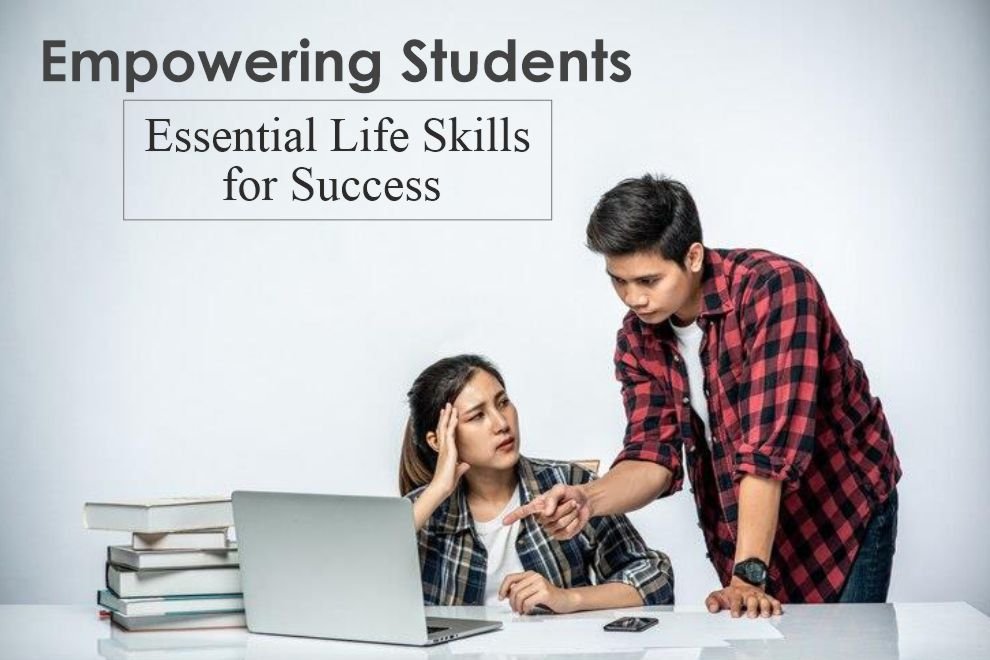In today’s rapidly evolving world, academic knowledge alone is no longer sufficient to guarantee success. Students need a diverse set of life skills to navigate the complexities of personal and professional life. This article explores the crucial life skills that can empower students and set them up for long-term success.
“Incorporating life skills into education is essential for preparing students to handle real-world challenges. These skills are just as crucial as academic knowledge for overall success.” – Matt Mayerle, Personal Financial Editor at CreditNinja.com
Effective Communication
Strong communication skills are fundamental to success in almost every aspect of life. Students should focus on developing:
- Active listening: The ability to fully concentrate, understand, respond, and remember what is being said.
- Clear verbal expression: Articulating thoughts and ideas coherently and confidently.
- Written communication: Crafting well-structured, grammatically correct, and persuasive written content.
- Non-verbal communication: Understanding and using body language, facial expressions, and tone of voice effectively.
Encourage students to practice these skills through group discussions, presentations, and writing exercises.
Critical Thinking and Problem-Solving
In an era of information overload, the ability to think critically and solve problems is invaluable. Students should learn to:
- Analyze information objectively
- Evaluate arguments and evidence
- Identify patterns and connections
- Generate creative solutions
- Make informed decisions
Incorporate problem-solving activities and case studies into the curriculum to hone these skills.
Time Management and Organization
Effective time management is crucial for balancing academic responsibilities, extracurricular activities, and personal life. Teach students to:
- Prioritize tasks
- Create realistic schedules
- Avoid procrastination
- Use productivity tools and techniques
- Set both short-term and long-term goals
Encourage the use of planners, digital calendars, and time-tracking apps to develop these habits.
Emotional Intelligence
Emotional intelligence is the ability to recognize, understand, and manage one’s own emotions, as well as empathize with others. This skill set includes:
- Self-awareness
- Self-regulation
- Motivation
- Empathy
- Social skills
Incorporate activities that promote self-reflection, mindfulness, and team-building exercises to enhance emotional intelligence.
Financial Literacy
Understanding personal finance is a crucial life skill often overlooked in traditional education. Students should learn about:
- Budgeting and saving
- Basic investing principles
- Understanding credit and debt
- Insurance and risk management
- Tax basics
A solid foundation in financial literacy can help students make informed decisions about their future. For instance, understanding the concept of credit scores is essential. When was credit score invented? When did it become widely used? How does it affect students today? Such historical and practical knowledge about credit scores can empower students to make informed financial decisions. Understanding the evolution and impact of credit scoring systems helps young adults navigate the complexities of personal finance, from securing loans for higher education to planning for future housing needs.
“Understanding concepts like credit scores and budgeting can empower them to make informed financial decisions.” – Matt Mayerle (CreditNinja)
Digital Literacy and Cybersecurity
In our increasingly digital world, students must be equipped with:
- Basic coding and tech troubleshooting skills
- Understanding of digital privacy and security
- Ability to evaluate online information critically
- Proficiency in using various software and digital tools
- Knowledge of responsible digital citizenship
Incorporate digital literacy lessons into various subjects and consider offering dedicated courses on cybersecurity and coding.
Adaptability and Resilience
The ability to adapt to change and bounce back from setbacks is crucial in today’s fast-paced world. Encourage students to:
- Embrace change and see it as an opportunity for growth
- Develop a growth mindset
- Practice stress management techniques
- Learn from failures and setbacks
- Cultivate a support network
Create a supportive environment where students feel safe to take risks and learn from their mistakes.
Collaboration and Teamwork
Most careers require the ability to work effectively in teams. Help students develop:
- Active participation in group projects
- Respect for diverse perspectives
- Conflict resolution skills
- Leadership abilities
- Ability to give and receive constructive feedback
Incorporate group projects and team-based learning activities across various subjects to foster these skills.
Cultural Competence and Global Awareness
In our interconnected world, students need to develop:
- Understanding and appreciation of diverse cultures
- A global perspective on various issues
- Foreign language skills
- Ability to work in diverse environments
- Awareness of global current events
Encourage participation in cultural exchange programs, international collaborations, and discussions on global issues.
Entrepreneurial Mindset
Fostering an entrepreneurial spirit can benefit students regardless of their career path. This includes:
- Identifying opportunities and innovative solutions
- Taking calculated risks
- Developing a strong work ethic
- Understanding basic business principles
- Networking and relationship-building skills
Encourage participation in business competitions, internships, and entrepreneurship clubs to develop these skills.
Conclusion
Empowering students with these essential life skills is crucial for their long-term success and well-being. While academic knowledge provides a strong foundation, these practical skills equip students to navigate the complexities of personal and professional life effectively.
Educators, parents, and mentors should work together to create opportunities for students to develop and practice these skills. This can be done through a combination of classroom activities, real-world experiences, and dedicated workshops or programs.
Focusing on these essential life skills can help create a generation of well-rounded, adaptable, and resilient individuals ready to thrive in an ever-changing world. The goal is not just to prepare students for exams or their first job but to empower them with the tools they need for lifelong success and personal fulfillment.
Remember, the development of these skills is an ongoing process. Encourage students to continue learning, growing, and adapting throughout their lives. By doing so, we can help create a future generation of empowered, capable, and successful individuals ready to tackle the challenges and opportunities of tomorrow.
Also Read: Navigating the IGCSE Exam Season: Essential Advice for Students










